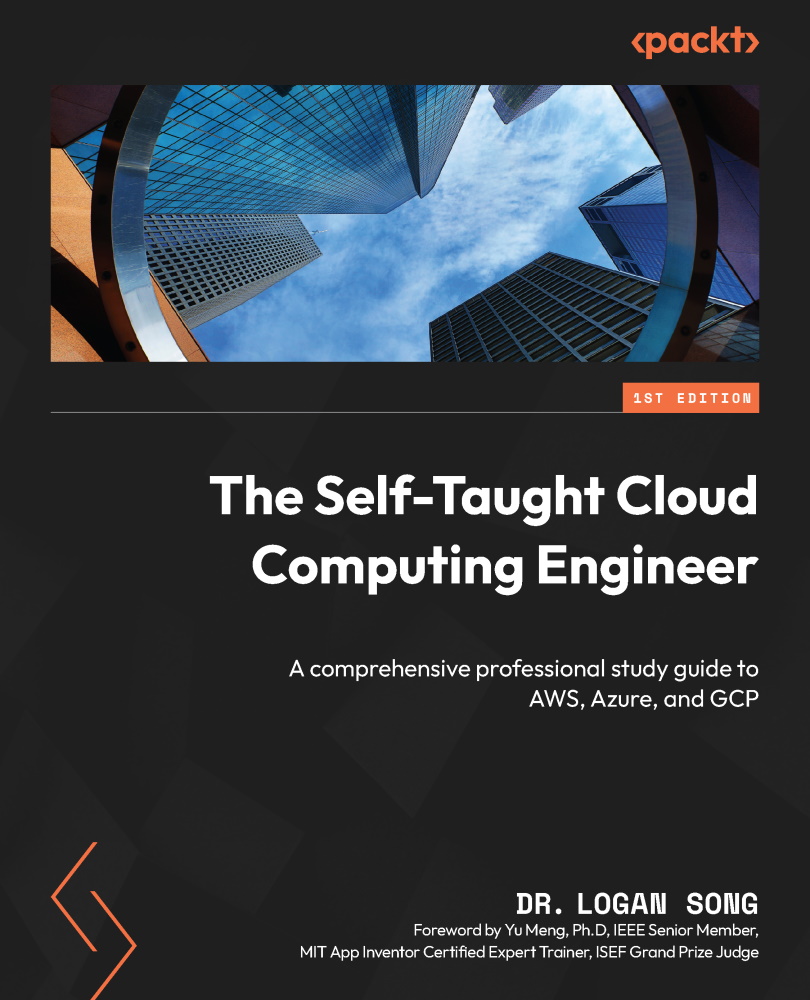AWS compute – from EC2 to containers to serverless
So far in this chapter, we have dived into the AWS EC2 service and discussed AWS ELB and ASG. Now, let’s spend some time expanding to the other AWS compute services: ECS, EKS, and Lambda (serverless service).
We have discussed the virtualization technology led by VMware at the beginning of the 21st century. While transforming from physical machines to VMs is a great milestone, there still exist constraints from the application point of view: every time we need to deploy an application, we need to run a VM first. The application is also tied up with the OS platform and lacks flexibility and portability. To solve such problems, the concept of Docker and containers came into the world. A Docker engine virtualizes an OS to multiple apps/containers. A Docker image is a lightweight, standalone, executable package of software that includes everything needed to run an application: code, runtime, system tools, system libraries, and settings. A container is a runtime of the Docker image, and the application runs quickly and reliably from one computing environment to another. Multiple containers can run on the same VM and share the OS kernel with other containers, each running as isolated processes in user space. To further achieve fast and robust deployments and low lead times, the concept of serverless computing emerged. With serverless computing, workloads run on servers behind the scenes. From a developer or user’s point of view, what they need to do is just submit the code and get the running results back—there is no hassle of building and managing any infrastructure platforms at all, while resources can continuously scale and be dynamically allocated as needed, yet you never pay for idle time as it is pay per usage.
From VM to container to serverless, Amazon provides EC2, ECS/EKS, and Lambda services correspondingly.
Amazon ECS is a fully managed container orchestration service that helps you easily deploy, manage, and scale containerized applications using Docker or Kubernetes. Amazon ECS provides a highly available and scalable platform for running container-based applications. Enterprises use ECS to grow and manage enterprise application portfolios, scale web applications, perform batch processing, and run services to deliver better services to users.
Amazon EKS, on the other hand, is a fully managed service that makes it easy to deploy, manage, and scale Kubernetes in the AWS cloud. Amazon EKS leverages the global cloud’s performance, scale, reliability, and availability, and integrates it with other AWS services such as networking, storage, and security services.
Amazon Lambda was introduced in November 2014. It is an event-driven, serverless computing service that runs code in response to events and automatically manages the computing resources required by that code. Amazon Lambda provides HA with automatic scaling, cost optimization, and security. It supports multiple programming languages, environment variables, and tight integration with other AWS services.
For more details about the aforementioned AWS services and their implementations, please refer to the Further reading section at the end of the chapter.
































































